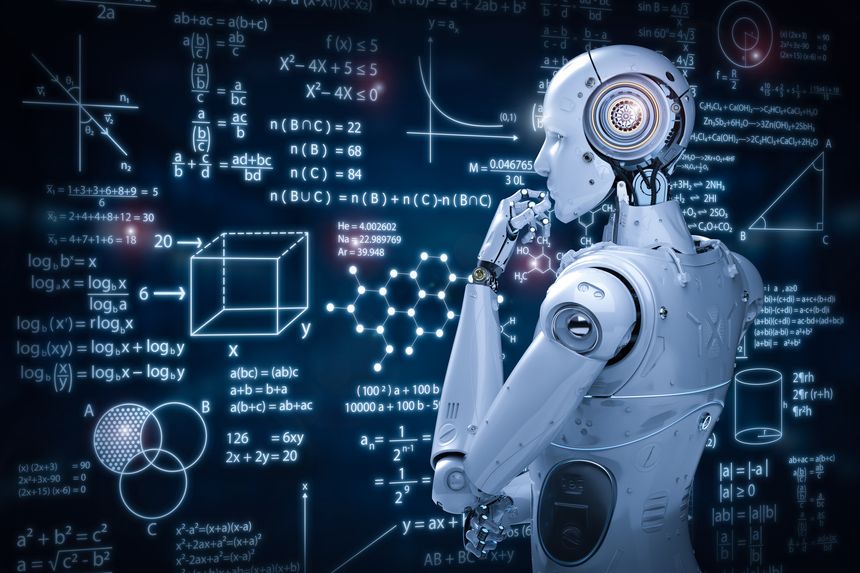Welcome to the exciting and ever-evolving world of technology! With each passing year, we see new advancements that have the potential to change the way we live and work. Artificial Intelligence (AI) is one such technology that is making waves in the world of system engineering. In this article, we’ll dive into how AI is transforming the field and what it means for the future of system engineers.
The AI Revolution
System engineering is a crucial aspect of the tech industry, responsible for the design, development, and maintenance of complex systems. With AI, system engineers are now able to automate many of the manual tasks associated with this work, freeing up valuable time and resources. This not only increases efficiency but also allows engineers to focus on more strategic and creative projects.
The true power of AI lies not in its ability to automate tasks, but in its capacity to augment human intuition and enhance our problem-solving skills. It is not a replacement for human intelligence, but a tool that enables us to transcend our limitations and achieve greater things.
— Kenio Shirley
AI Impact on the System Engineering Field
One of the most significant benefits of AI in system engineering is the ability to make data-driven decisions. AI algorithms can analyze vast amounts of data, providing engineers with insights and predictions that would have taken weeks or even months to gather manually. This leads to more accurate and informed decision making, which in turn results in improved systems and better outcomes for businesses and end-users.
Another key benefit of AI in system engineering is the ability to detect and prevent problems before they occur. With AI algorithms continuously monitoring systems, engineers can be alerted to potential issues before they become critical, allowing them to take proactive measures to address the problem. This not only increases the reliability and stability of systems but also reduces downtime, saving businesses time and money.
While AI has the potential to revolutionize system engineering, there are also some potential downsides to consider. One of the main concerns is the loss of jobs as manual tasks are automated. This can result in a reduction of the workforce, and engineers who do not embrace the technology may find themselves out of work. Additionally, there is a risk of over-reliance on AI, with engineers relying too heavily on algorithms and losing their intuition and problem-solving skills.
-
Provisioning of servers and storage: Automating server and storage provisioning eliminates the manual processes involved, reducing the time it takes to deploy infrastructure.
-
Network Configuration: AI algorithms can automate the process of configuring networks, allowing network administrators to focus on more critical tasks.
-
Monitoring and Troubleshooting: AI algorithms can monitor systems in real-time and identify potential issues, alerting administrators to resolve them before they become bigger problems.
-
Software Updates: AI algorithms can automate software updates, eliminating the need for manual processes and freeing up time for administrators.
-
Compliance Management: AI algorithms can automate the process of managing and monitoring regulatory compliance, reducing the time and effort required for administrators.
-
Backup and Recovery: AI algorithms can automate the backup and recovery process, ensuring that data is securely stored and recoverable in case of an emergency.
-
Predictive Maintenance: AI algorithms can be used to predict when systems need maintenance and repair, reducing downtime and maintenance costs.
-
Performance Optimization: AI algorithms can be used to optimize system performance, ensuring that systems run at peak efficiency and improving overall system performance.
-
Disaster Recovery Planning: AI algorithms can automate the process of disaster recovery planning, reducing the time and effort required for administrators and ensuring that systems are protected in case of an emergency.
By automating these tasks, AI has the potential to drastically improve system engineering efficiency, reduce turnaround time, and free up time for more critical tasks. As the technology continues to evolve, it is likely that AI will play an even greater role in shaping the future of system engineering.

My two-cents: How can Engineers refrain from relying on AI
-
Continuously educate yourself: Stay up-to-date with the latest developments in AI and technology. Take online courses, attend conferences, and network with other professionals to keep your knowledge fresh.
-
Practice critical thinking: While AI algorithms can automate many tasks, they still need human input to make informed decisions. Practice critical thinking by questioning the outputs of algorithms and exploring alternative solutions.
-
Work on projects that require human intuition: Seek out projects that require human intuition and creativity. This will help you maintain your problem-solving skills and keep your mind sharp.
-
Encourage collaboration between AI and humans: Work with AI experts to find ways to integrate AI and human intuition in a complementary manner. This will help you leverage the strengths of both AI and humans for more effective problem solving.
-
Embrace a growth mindset: Embrace a growth mindset by continuously learning and challenging yourself. This will help you adapt to changes in the field and maintain your problem-solving skills over time.
By following these tips, you can ensure that you don’t become overly reliant on AI and maintain your valuable intuition and problem-solving skills.
In conclusion, AI is rapidly transforming the world of system engineering, bringing about new opportunities and challenges. By embracing AI and its capabilities, system engineers can work more efficiently, make more informed decisions, and improve the overall stability and reliability of systems. However, it’s crucial to be aware of the potential downsides and take proactive steps to ensure that the technology is used to enhance and support, rather than replace, the skills and expertise of system engineers.
As the tech industry continues to evolve, it’s clear that AI will play a crucial role in shaping the future of system engineering. So, whether you’re a seasoned engineer or just starting out in the field, now is the time to embrace AI and reap the benefits of this exciting and transformative technology.
